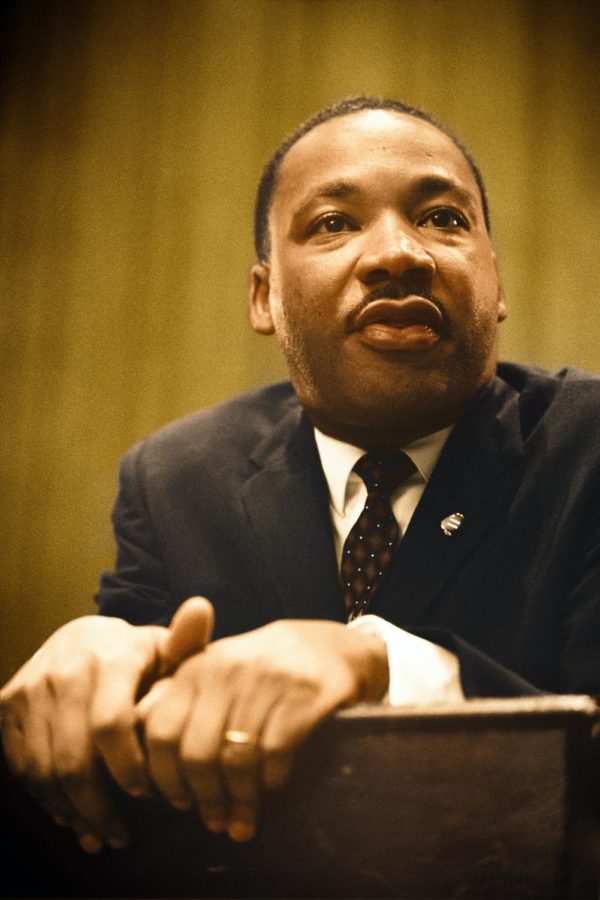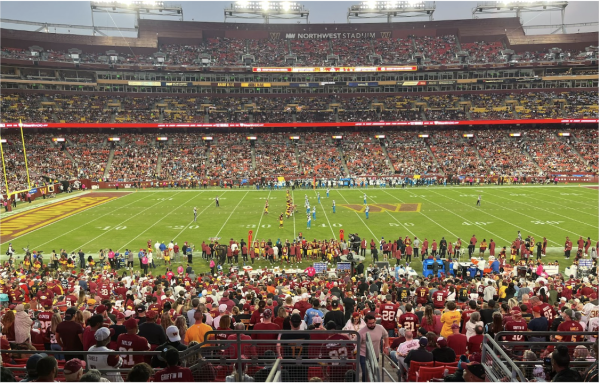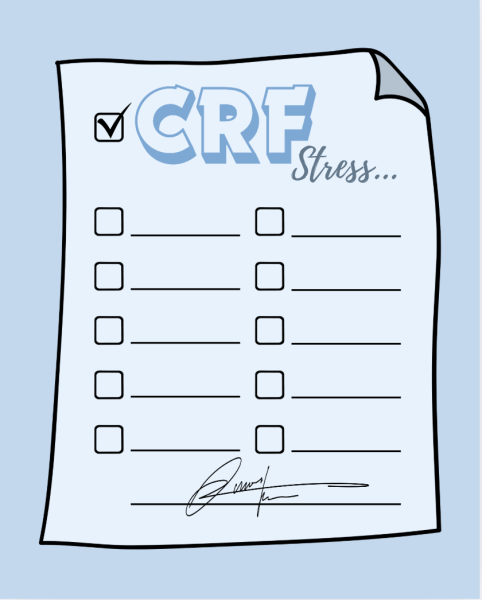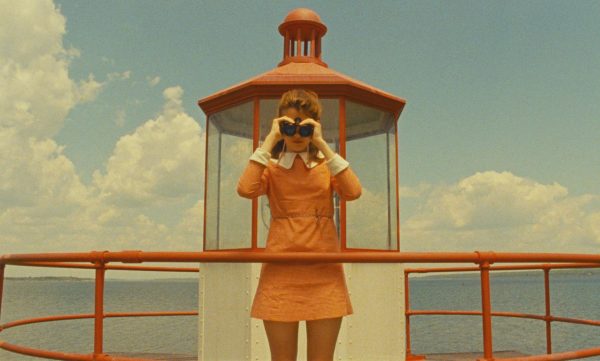How Stevie Wonder led the push for MLK Day
“We should not forget that Stevie remembered” – Gil Scott Heron
Photo via Unseen Histories on Unsplash
Minister and activist Martin Luther King Jr.
Photo via Unseen Histories on Unsplash
This year, the official celebration of Martin Luther King Jr’s birthday was met with near universal applause. In this wonderful sea of commendation, it is easy to ignore the holiday’s tumultuous origins. MLK day honors a man who, especially during his lifetime, was extremely controversial. However, it somehow still surprised me to learn just how difficult it was to get his actual federal holiday signed into law.
I first became interested in the holiday’s story after reading an interview with Neo-Soul pioneer and Jazz vibes (vibraphone, and the other thing) legend Roy Ayers. “I had so much respect for what Martin Luther King and Coretta Scott King had done for the country and civil rights, that when Stevie Wonder called I was really happy to get involved,” Ayers said. Excuse me? Roy Ayers got a call from Stevie Wonder? To help with what? As a huge fan of both Ayers and Wonder, I was flabbergasted. I had never heard a thing, and had to know more.
To understand the context of this astonishing call, we need to rewind.
“Memphis meant music. And unless you stop to think for a minute, you might forget that it was in Memphis that Dr. Martin Luther King, Jr. was shot and killed on a motel balcony on 4 April 1968. Stevie Wonder did not forget,” musician, poet, and revolutionary Gil Scott Heron wrote in his memoir, The Last Holiday.
According to Marcus Baram, author of Gil Scott Heron biography “Pieces of a Man”, Stevie Wonder was only an 18-year-old boy when he heard the devastating news of the assassination. He was in the backseat of a car on his way home from the Michigan School for the Blind. His driver shut off the radio and they rode on in bereft silence, “tears streaming down Wonder’s face.”
Five days later, Wonder boarded a plane to Atlanta for the slain civil rights hero’s funeral, where he met his local representative, African-American Congressman and activist John Conyers, according to The Current. Just before the funeral, Conyers had introduced his first bill for the establishment of a federal holiday honoring the birth of Martin Luther King Jr, according to The Washington Post. That day of united mourning, unbeknownst to either of them, would mark the beginning of a 15 year odyssey for the formation of MLK day.
According to ConstitutionCenter.org, The first attempt at legislation was a resounding failure, but the growing movement persisted. Conyers reintroduced bill after bill, year after year. Every year, every rejection came with new co-sponsors and increased public support.
According to Baram, while congressional support stagnated, leaders of the movement, Wonder included, looked to the people. Rallies were held and speeches were delivered by Wonder, Conyers, and Corretta Scott King, to name a few. Labor unions, who, according to The Nation, lauded King as a “working-class hero,” held general strikes on Martin Luther King Jr.’s birthday, honoring the holiday that the conservative Congress denied.
“It is up to me and you. We hold the keys to opening the door to a truth we have known all the time. Dr. King and all those who died for God’s love are extensions of what God’s child died for,” Wonder said at a 1979 rally.
By 1979, thanks to the movement’s momentum, President Jimmy Carter voiced his support for the bill, according to Politico. Carter delivered this endorsement at the Ebenezer Baptist Church in Atlanta, GA, where King had formerly co-pastored. Despite this, Congress remained defiant, led by conservatives who still reviled King as a criminal, communist agitator (depending on who you ask, however, these were among King’s noblest attributes).
At a rally following this endorsement, Wonder encouraged action.
“We all know his dream, and we all say we want it to come true. But words are only verbiage. We must put action with these thoughts to make Martin Luther King Jr.’s dream a reality,” Wonder said.
These words were not hollow. Wonder took action. Some time earlier, he had recorded a song: “Happy Birthday,” to honor Dr. King. He held onto the record until “the movement for the holiday was gaining steam,” reflected producer and close collaborator Malcolm Cecil. Now was the time.
“Happy Birthday” is a song overflowing with joyful reverence, unabashed honor. When Wonder belts “we know that love can win, let it out, don’t hold it in, sing it loud as you can, Happy Birthday,” he does not merely sing it. He makes you believe that love, that respect, self respect, respect for others, will triumph. All of this passion is baked in Wonder’s signature funk, the instrumentation marching in a beautiful swing between his 1970s soul and 1980s sparkle.
Wonder made King’s song “Happy Birthday” the enthusiastic crux of his 1980 album “Hotter Than July”. The song is a boisterous, full throttle finale to the classic album, closing out not just with a bang, but with a ba-boom. It’s no wonder, then, that Wonder’s version of the happy-birthday tune has become known and sung as a defacto black version of the birthday song, according to Slate. This would not be Wonder’s final political closer. His 1985 masterpiece, an album titled In Square Circle, concludes with “It’s Wrong (Apartheid).”
“Hotter Than July” is quite literally wrapped in the fight for MLK: the record’s sleeve features a medley of images, surrounding a portrait of King. Before anyone played the record, they witnessed the marching, rioting, resistance and police violence following the civil rights leader’s assassination. The opposite side of the sleeve offers a sort of paper tombstone. A photo of King smiling occupies most of the frame. Adorning his head, simply: “Martin Luther King, Jr. January 15, 1929 — April 4, 1968.” Beneath him, Wonder offers a eulogy:
“It is believed that for a man to lay down his life for the love of others is the supreme sacrifice. Jesus Christ by his own example showed us that there is no greater love. For nearly two thousand years now we have been striving to have the strength to follow that example. Martin Luther King was a man who had that strength. He showed us, non-violently, a better way of life, a way of mutual respect, helping us to avoid much bitter confrontation and inevitable bloodshed. We still have a long road to travel until we reach the world that was his dream. We in the United States must not forget either his supreme sacrifice or that dream. I and a growing number of people believe that it is time for our country to adopt legislation that will make January 15, Martin Luther King’s birthday, a national holiday, both in recognition of what he achieved and as a reminder of the distance which still has to be traveled. Join me in the observation of January 15, 1981 as a national holiday.”
From here, Stevie Wonder was especially committed to the push for MLK Day. He announced a bold tour; according to Heron, it was to span 16 weeks, each stop a mammoth rally to the preservation of King’s legacy. Every show would conclude with a rousing performance of “Happy Birthday.” Originally, according to the Detroit News, reggae megastar Bob Marley was slated to play alongside Wonder all the way. However, following his tragic cancer diagnosis, Marley was unable to perform. His spot was filled by forever genius Gil Scott Heron, known now most widely for his 1971 poem/song “The Revolution Will Not Be Televised” (please listen to his album “Pieces of a Man” please listen to “Pieces of a Man” please listen to “Pieces of a Man”), and the campaign began.
The tour was going swimmingly. According to the New York Post, guests frequently joined Wonder and Heron, energizing the crowd in the fight for MLK. One notable surprise appearance came when Micheal Jackson leapt on stage at Madison Square Garden. Heron recalls the Prince of Pop twirling “like a boneless ice skater.”
According to Heron, 10 weeks into the tour came an extraordinarily powerful rally, on January 15, King’s birthday. Wonder and Heron were joined by musicians the likes of Gladys Knight, Diana Ross, and more, as well as civil rights leaders, most notably Reverend Jesse Jackson. The most important guests, though, were those whom Stevie beckoned that previous year on the sleeve of Hotter Than July, to come out in mass observation of MLK Day. Over 50,000 people braved the Washington, D.C. winter to participate in this fantastic birthday celebration.
“My respect for Stevie Wonder expanded in every direction that day,” Heron said. “I was following his lead like a member of his band, because seeing as he had envisioned was a new level of believing. It was something that seeped in softly, and when you were personally touched by someone’s effort and genuine sincerity, your brain said you didn’t yet understand but your soul said you should trust.”
That day, as Wonder, Heron, and the rest of the band took the stage, the crowd ushered them on in exuberant uproar, chanting “Martin Luther King Day, we took a holiday!” Wonder began the part-show-part-rally with a rousing monologue.
“It’s fitting,” he said, “that we should gather here, for it was here that Martin Luther King inspired the entire nation and the world with his stirring words, his great vision both challenging and inspiring us with his great dream. People have asked, ‘Why Stevie Wonder, as an artist?’ Why should I be involved in this great cause? I’m Stevie Wonder the artist, yes, but I’m Steveland Morris, a man, a citizen of this country, and a human being. As an artist, my purpose is to communicate the message that can better improve the lives of all of us. I’d like to ask all of you just for one moment, if you will, to be silent and just to think and hear in your mind the voice of our Dr. Martin Luther King…”
This moment was the emphatic peak of the movement for the holiday. According to The Current, the momentum was finally unstoppable. It was around this time that Wonder made the aforementioned call to Ayers, according to Creative Loafing. Stevie Wonder’s “Happy Birthday” was then joined by Roy Ayers’ “Holiday”, another song written as a tool for the creation of MLK Day. Louder than either song, though, were the personal songs of millions of Americans, belted in honor of Martin Luther King Jr. The holiday was signed into federal law in 1983, and observed nationally starting in 1986, according to the New York Post.
“Somehow, years later, it seems that Stevie’s effort as the leader of this campaign has been forgotten,” Heron recounted in his memoir. “But it is something that we should all remember. Just as surely as we should remember April 4, 1968, we should celebrate January 15. And we should not forget that Stevie remembered.”
Citations:
https://spokesman-recorder.com/2020/01/12/the-tour-that-helped-create-the-mlk-holiday/
https://creativeloafing.com/content-267823-roy-ayers-godfather-of-neo-soul-reflects-on-a-lifetime-of
What did you think about this story? Do you have any suggestions for improvements or other articles that you would like to see? Please use the contact form to communicate with us! (Keep all information school-appropriate)
https://docs.google.com/forms/d/e/1FAIpQLSeRYRWwLLzvs2rqwHSGdr-DQRvxhUSx9UcaXypXxnvVuCqwyA/viewform










